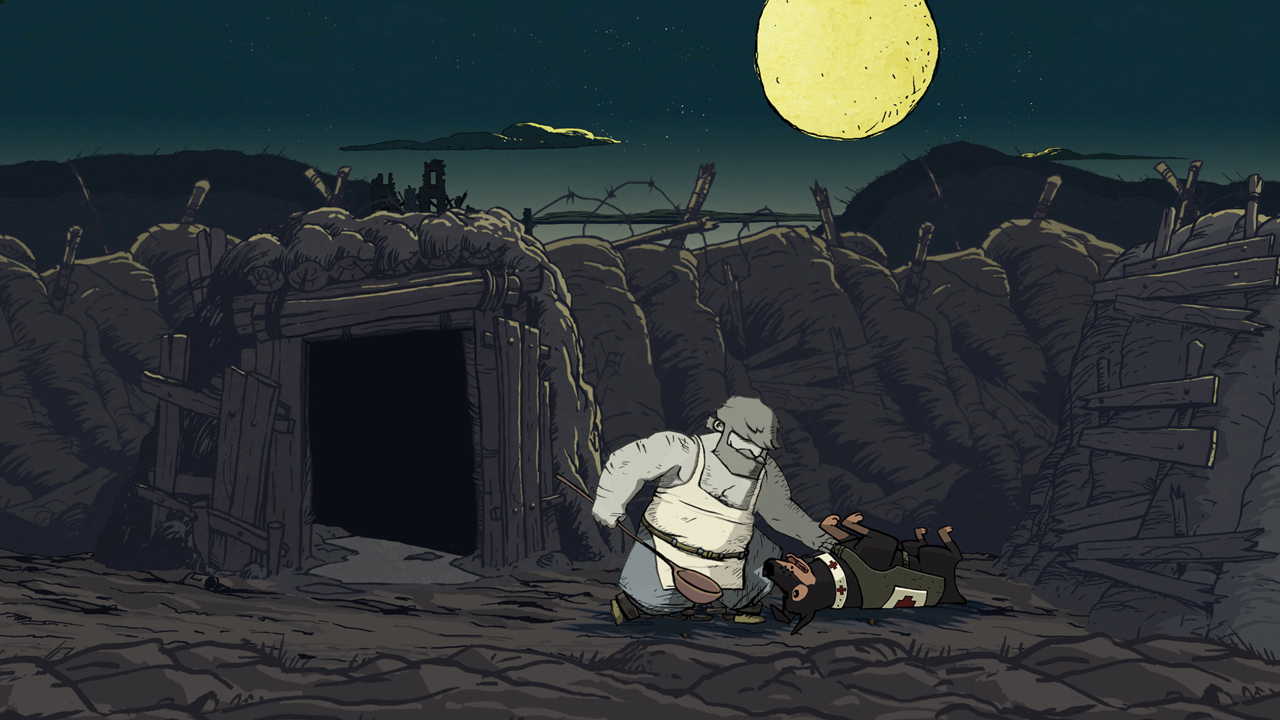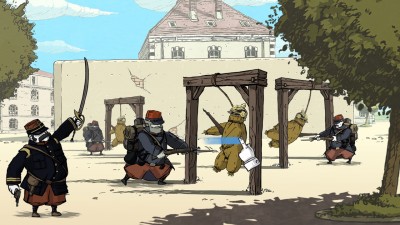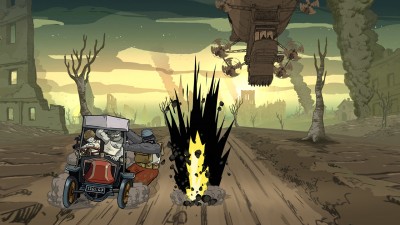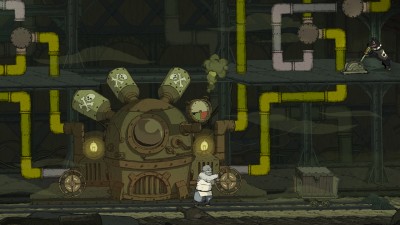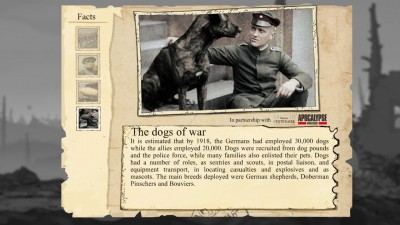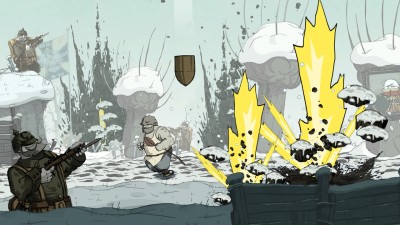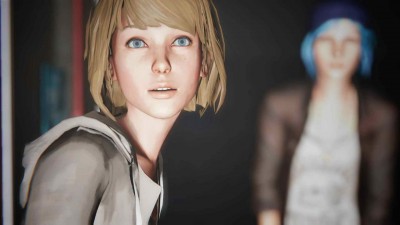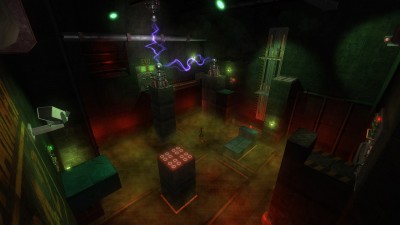You should play Valiant Hearts: The Great War.
If I could leave my review at that, with you persuaded to go out and buy the game, I would. But I can’t and I won’t, because there’s a lot which can be said about Valiant Hearts, Ubisoft Montpellier’s side-scrolling First World War puzzle/platformer, built on the wonderful UbiArt framework. But for now, let’s stick to the review-y stuff, and I’ll link my ruminations on the game here at a later date.
I can’t speak for education systems outside of the countries I have taught in (I used to be a teacher, don’cha know), but while my old history teacher used to say that World War I was basically the European War because nobody else fought in it, that is simply not true. Indian, Canadian and even American troops all fought in the conflict, and if you’re reading this there’s a very high chance that the War had some influence on the history of your country - some more than others, I will grant you that, Mr… I forget my old history teacher’s name - it doesn’t matter he was useless anyway and that’s beside the point. The point is that while Valiant Hearts centers around a farmer named Karl and his family from France, Valiant Hearts is careful to ensure that soldiers from all sides make an appearance at one point or another - regardless of how far-flung their homeland.
The story begins in the 1914 and the outbreak of what was then the most terrible and costly war Humanity has ever waged. Archduke Franz Ferdinand (no relation to the band) is assassinated and Germany declares war on Russia in response. Caught up in the relationships with their allies and anticipating war, France begins deporting all German citizens - irrespective of if they have French family. Karl is forcibly removed from his wife Marie and their son Victor, as well as his father-in-law Emile. Torn from his honest life in the French countryside and having the ultimate in shitty luck, Karl is then drafted into the German army - just as Emile finds himself in an even shittier position: he is drafted into the French army. Thus, the two family members are set on a collision course with one another.
This is where Valiant Hearts hands you the controls. Your tutorial takes the form of Emile’s military training, where he trades his pitchfork for a rifle and a grenade. The rifle never actually gets any use; Valiant Hearts obviously features a lot of death - 9 million combattants and 7 million civilians died either in the war or as a result of it. But it’s never carried out at your hands. Instead of shooting Germans, Emile shows the player that Valiant Hearts is a side-scrolling puzzle-adventure game.
Mission to mission, you’re either tasked with the simple goals - fetching a bottle of wine for the general, rescuing a dying soldier from gas, or even just fixing the wheel of your companion’s car - or you’re running for your life from a horrifying shelling which is obliterating your fellow soldiers. Objectives aren’t meted out via spoken or written dialogue - aside from the narration, Valiant Hearts is completely free of dialogue, aside from some simple illustrations in speech bubbles which help to convey the gist of the goings-on. This could easily have been frustrating and confusing, but thankfully Ubisoft Montpellier handles the restriction well, and the lack of dialogue at least avoids the potential pitfall of the final game undermining the human sacrifice, grief and horror of the conflict.
The puzzles in Valiant Hearts can be tricky at times. You don’t simply play as Emile, either; you swap between 4 characters from 4 different nations throughout the game. Each character has their own profession and abilities which sometimes interplay with each other, allowing for some truly intriguing and clever level design. For example, as Emile you may be stuck at an area with barbed wire. You know you can’t through it - your other character has the wire cutters - so you find an area where you can dig a trench to escape being shot by the mounted gun on an overlooking hill. Likewise, if your character can’t dig in, you may be able to cut the wires and dive into a house to avoid a thorough perforation. It’s a neat way of reusing environments while keeping them fresh.
The only character which is ubiquitous throughout Valiant Hearts is your trusty dog. Dogs were a large and important part of the First World War, Valiant Hearts teaches us. Your canine friend is (almost) always by your side. If Emile can’t reach a key, our trusty canine will distract the guard for you to knock out, or simply grab them himself. Likewise, if you can’t walk through a room because of the gas in there, your little buddy will go in, do what needs doing, and come back to help you out. There is a truly touching moment where you put a gas mask on the dog and he wags his tail; he wags it anyway - you didn’t make him do that by putting the mask on him - but the simple act of preserving this dog’s life is one which hits you right in the feels. A dog in a gas mask looks wrong, but the dog loves you, and bloody hell do you love that dog by the end of the game…
So we have a highly emotive game - very few things have ever made me cry and this game came shockingly close. The question now is how does it look and sound? Well it sounds pretty much like you’d expect it to; the Frenchmen (or rather babble nonsensically) in a French accent, the Germans sound German, and the dog somehow understands everything everyone says. As mentioned previously, characters in Valiant Hearts don’t actually speak proper anything - they mutter and grumble in what sounds like the appropriate dialect, with a couple of what sound like comprehensible words thrown in for good measure. It’s all very simlish, but it works well. It doesn’t matter if Emile grumbles when he pets the dog when taking the stick of dynamite it brought him; what matters is that he’s devastatingly lonely. His family is torn apart and shooting at each other, and he’s heartachingly grateful for this small dog which keeps him company when it isn’t saving his life.
Incidentally, the game looks fantastic too. How do you best show an educational yet fictional game? With comics - that’s how. Valiant Hearts‘ scratchy, sketchy comic-book art style doesn’t feel like this was an atrocity which took the lives of 16 million people - right up until you pick up a collectible: a broken watch which is sitting in a museum somewhere reminding everyone of how bad things once were. When you get to certain level markers you’ll receive factoids which you can view in the menu which discuss the War - battles and events which actually happened, complete with the real-world photographic evidence of those who stood before us, in a trench with masks over their face to protect them from the mustard gas attacks that the Germans were using. It’s the visual moments like that which rip you back from the comic juxtaposition and show you what war really looks like. It’s the moments like that which add haunting sobriety to an otherwise touching story.
I’ve been very careful not to talk about the wider story of the game, aside from the basic premise. Partly, this is because we all know how the War ended; and partly, it’s because you can belt through the whole campaign in around 7 hours and I don’t want to ruin some of the more touching moments - of which there are plenty. Valiant Hearts manages to be both touching and heart-warming, as well as convey the emotional impact of the Great War. Many other developers would simply be content and sticking a gun in your hand and asking you to go off and kill the enemy; Ubisoft Montpellier is clever enough to recognize that in such a muddied conflict, it’s hard to say who that enemy is. Instead, the war itself is the enemy here - doling out a truly human cost, tearing apart families and loved ones as the whole world goes to hell in a handbasket.
As astounding a work as Valiant Hearts is, it’s not perfect. There were several moments where I had to Alt-Tab out to YouTube and see how to solve a puzzle - every time the solution was to reboot the game and see if the bugs disappeared. While some people are happy to take that in their stride, I’m not, and I penalize anything which makes me reboot the game, other than my cat sharpening its claws on my precious game discs (R.I.P. Crash Bandicoot 3). While we might be used to technical problems in our games these days - especially those coming from Ubisoft - that doesn’t make them any more forgiveable, especially when the game in question is a relatively straight-forward, linear affair.
The take-home message is that while Valiant Hearts is not perfect - it’s entirely linear and prone to bugging out - it remains a fascinating story with some cool little puzzles. None of its conundrums require you to perform mental backflips the same way games like Monkey Island do, but you can proudly place Valiant Hearts on the shelf next to The Walking Dead and say “Fucking hell. That game was… just wow.”
It’s rare that I get to say this, but there are two reasons you need to play Valiant Hearts. First and foremost, it’s a sound game. Secondly - and this is important - truly educational games of this quality are a gem of untold value in this industry. At $15 Valiant Hearts is well worth your money, and maybe when you’re done, you’ll agree that Ubisoft Montpellier deserve a standing ovation for what they have achieved.
If you could hear, at every jolt, the blood
Come gargling from the froth-corrupted lungs,
Obscene as cancer, bitter as the cud
Of vile, incurable sores on innocent tongues,
My friend, you would not tell with such high zest
To children ardent for some desperate glory,
The old Lie; Dulce et Decorum est
Pro patria mori.-Wilfred Owen (thought to be written between 1914-1917)
